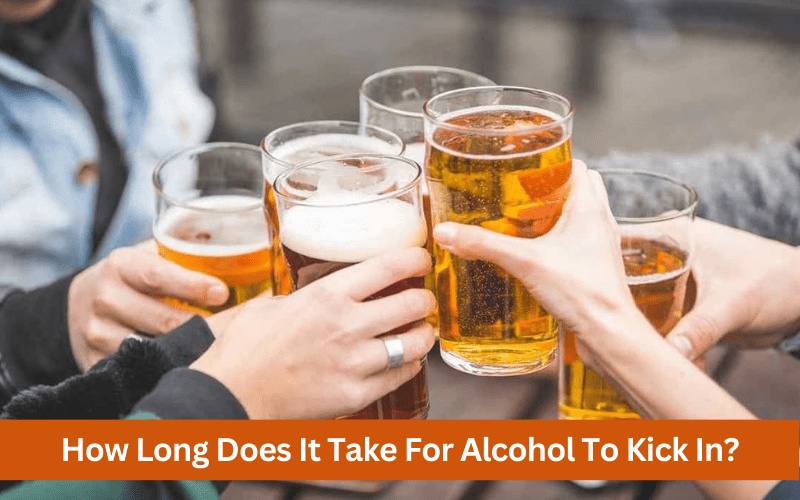If you’re anything like me, you’ve probably asked yourself how long does it take for alcohol to kick in? at least once in your life. Whether it’s a social gathering or a night out with friends, it’s hard to resist the allure of a good drink. But have you ever wondered why some drinks hit you faster than others? As someone who’s had their fair share of experiences with alcohol, I’ve learned that the answer to this question goes beyond just the type of drink you’re having. In this article, we’ll explore the science behind how long does it take for alcohol to kick in, and what factors can impact the speed and intensity of those effects.
What Is Alcohol?
According to the World Health Organization (WHO), alcohol is a type of psychoactive substance that has been used for centuries across many cultures. It is known for its ability to induce a range of effects on the mind and body, including dependence and addiction.
The consumption of alcohol has become a common activity worldwide, and its effects on human health and well-being have been widely studied.
While moderate consumption of alcohol can have some health benefits, excessive drinking can lead to serious health problems, social issues, and economic costs. Therefore, it is important to understand the nature of alcohol and its potential effects on individuals and societies.
What Is A Standard Drink?
A standard drink is a unit of measurement used to determine the amount of pure alcohol contained in a given beverage. It is defined by the National Institute on Alcohol Abuse and Alcoholism (NIAAA) as containing 14 grams of pure alcohol, which is the amount found in:
- 12 ounces of regular beer (usually about 5% alcohol)
- 5 ounces of wine (usually about 12% alcohol)
- 1.5 ounces of distilled spirits (usually about 40% alcohol)
Understanding what constitutes a standard drink can help individuals make informed decisions about their alcohol consumption, as well as help healthcare professionals and researchers accurately assess patterns of alcohol use and related health outcomes.
How The Body Processes Alcohol
Here are some of the ways in which your body processes alcohol:
- Absorption: Once alcohol is consumed, it is absorbed into the bloodstream through the lining of the stomach and small intestine.
- Distribution: Alcohol is distributed throughout the body, affecting various organs and systems, including the brain, liver, and kidneys.
- Metabolism: The liver is primarily responsible for breaking down alcohol through a process called oxidation. Enzymes in the liver convert alcohol into acetaldehyde, which is then broken down further into acetate and eventually eliminated from the body.
- Elimination: The kidneys eliminate a small portion of alcohol through urine, breath, and sweat.
- Blood Alcohol Concentration (BAC): BAC refers to the amount of alcohol present in the bloodstream, which can be measured using a breathalyzer or blood test.
- Alcohol Tolerance: With regular drinking, the body may develop a tolerance to alcohol, requiring higher amounts to produce the same effects.
- Dehydration: Alcohol can dehydrate the body by increasing urine output and impairing the body’s ability to retain water.
- Hangovers: The effects of alcohol can last long after consumption, leading to symptoms such as headaches, nausea, and fatigue.
Knowing how your body processes alcohol can help you make informed decisions about your alcohol consumption and minimize the potential negative health effects associated with excessive drinking.
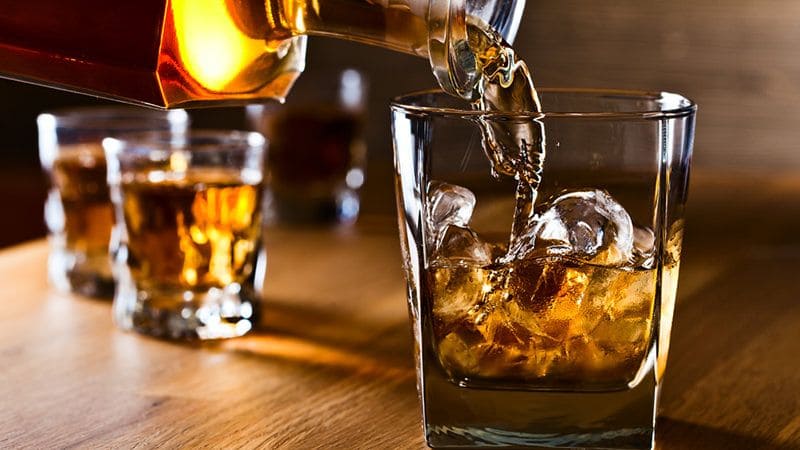
What Factors Affect How Quickly Alcohol Kicks In?
Several factors can affect how long does it take for alcohol to kick in and how it affects the body, including:
Body weight and composition
Generally, the more body fat a person has, the less water there is in their body to dilute the alcohol, resulting in a higher blood alcohol concentration (BAC) and a quicker onset of effects.
Gender
Women tend to have a higher percentage of body fat and less water in their bodies than men, making them more susceptible to the effects of alcohol and resulting in a quicker onset of effects.
Food consumption
Drinking on an empty stomach can lead to a quicker onset of alcohol effects, as there is no food to slow down the absorption of alcohol into the bloodstream.
Medications
Some medications, such as antibiotics and antidepressants, can interact with alcohol and affect how quickly it is absorbed into the bloodstream.
Genetics
Genetic factors can affect the way a person’s body metabolizes alcohol, leading to differences in how quickly it kicks in and how long it stays in the body.
Tolerance
Regular alcohol consumption can lead to the development of tolerance, meaning that a person needs to consume more alcohol to achieve the same effects.
Drinking rate
The rate at which alcohol is consumed can also affect how quickly it kicks in, as consuming alcohol quickly can lead to a rapid increase in BAC and onset of effects.
Blood Alcohol Concentration (BAC) and its Effects on the Body
Blood Alcohol Concentration (BAC) is a measure of the amount of alcohol present in a person’s bloodstream. As BAC increases, so do the effects of alcohol on the body. Here are some of the effects of different BAC levels:
- Sober: 0.0 percent BAC
- Legally intoxicated: .08 percent BAC. At this level, your ability to operate a vehicle safely and make sound decisions is significantly impaired.
- Very impaired: .08–0.40 percent BAC. This level of BAC can cause significant impairment to motor coordination, speech, and cognitive function. You may experience confusion, nausea, drowsiness, and have difficulty walking and speaking.
- At risk for serious complications: Above .40 percent BAC. At this level of BAC, the risk of serious complications such as coma or death significantly increases.
BAC levels can vary depending on a variety of factors, including body weight, gender, metabolism, and tolerance. Therefore, it is important to understand how alcohol affects your body and to make informed decisions about your alcohol consumption to avoid negative health consequences.
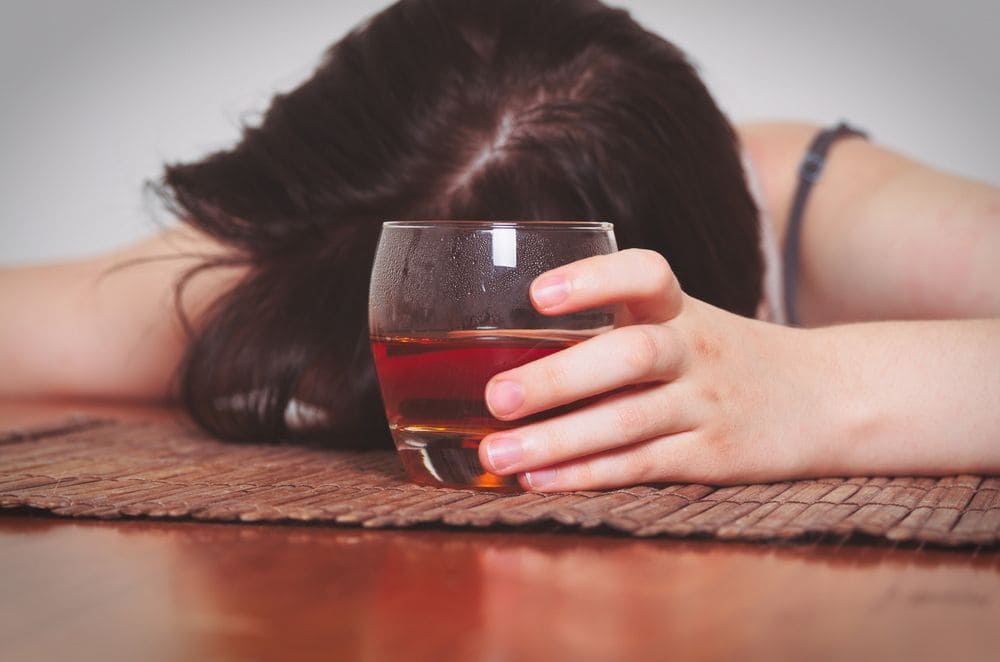
How Long It Takes for Alcohol to Kick in Legally?
When it comes to how long does it take for alcohol to kick in, the effects of alcohol can be felt differently depending on the individual. However, for a healthy person, the effects of a drink can typically be felt within 15 to 45 minutes.
It’s crucial to know that factors such as body weight, gender, and food consumption can affect how quickly alcohol kicks in and how it affects the body. Moreover, legal limits can vary by jurisdiction and activity, such as driving or operating heavy machinery.
How Long Does It Takes for Different Types ofAlcohol to Kick in
The time it takes for different types of alcohol to kick in can vary depending on several factors. Here’s a breakdown of how long it typically takes for popular types of alcohol to kick in:
- Beer: 15-20 minutes. Beer typically has a lower alcohol content than other types of alcohol, so it takes a bit longer to feel the effects.
- Wine: 10-15 minutes. Wine usually has a higher alcohol content than beer but lower than spirits, so the effects can be felt fairly quickly.
- Vodka: 10-15 minutes. Vodka has a high alcohol content, so the effects can be felt relatively quickly.
- Whiskey: 15-30 minutes. Whiskey usually has a higher alcohol content than wine, but lower than some other spirits, so the effects can take a bit longer to kick in.
- Tequila: 10-15 minutes. Tequila has a high alcohol content, so the effects can be felt fairly quickly.
- Rum: 10-15 minutes. Like tequila, rum has a high alcohol content and can produce effects relatively quickly.
- Brandy: 20-30 minutes. Brandy is a type of spirit with a higher alcohol content, so it can take a bit longer to feel the effects.
- Gin: 10-15 minutes. Gin typically has a high alcohol content, so the effects can be felt relatively quickly.
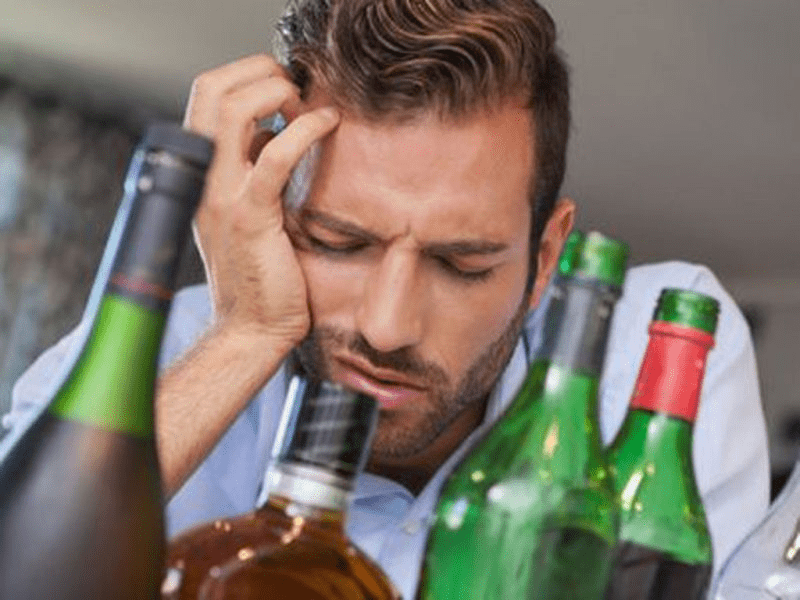
How Long Does It Take For Alcohol To Affect The Brain?
Alcohol has a quick effect on the brain, with it reaching the brain in just 5 minutes after consumption and starting to affect the body within 10 minutes. The liver begins processing the alcohol after 20 minutes, with an average metabolic rate of 1 ounce of alcohol per hour.
How Long Does It Take for Alcohol to Kick in on a Full Stomach?
Having a full stomach before consuming alcohol can slow down its absorption into the bloodstream, which means that it will take longer for the alcohol to kick in. However, the exact amount of time can vary depending on individual factors such as body weight, metabolism, and the type and amount of food consumed.
So, how long does it take for alcohol to kick in? In general, it can take up to an hour or more for alcohol to kick in after a full meal.
Does It Matter If Drinking with An Empty Stomach?
Drinking on an empty stomach can lead to a quicker onset of alcohol effects, as there is no food to slow down the absorption of alcohol into the bloodstream. This can result in a higher BAC and a higher risk of negative health consequences, such as impaired judgment and coordination, nausea, and vomiting.
Therefore, it’s recommended to eat a meal or snack before drinking alcohol to slow down the absorption and reduce the risk of negative effects.
How long does it take for alcohol to kick in on an empty stomach?
Alcohol can kick in faster on an empty stomach because there is no food to slow down its absorption into the bloodstream. This can lead to a quicker onset of alcohol effects, with some people feeling them within 10-15 minutes of consuming alcohol on an empty stomach.
The dangers of drinking on an empty stomach
Drinking alcohol on an empty stomach can increase the risks associated with alcohol consumption. Here are some of the potential risks:
- Higher BAC: Drinking on an empty stomach can result in a higher blood alcohol concentration (BAC), which can impair judgment, coordination, and other cognitive functions.
- Dehydration: Alcohol can have a dehydrating effect on the body, and drinking on an empty stomach can increase the risk of dehydration, leading to symptoms such as dizziness, headaches, and nausea.
- Risk of alcohol poisoning: When alcohol is consumed on an empty stomach, it can be absorbed into the bloodstream more quickly, which can increase the risk of alcohol poisoning. This is a medical emergency that can result in unconsciousness, seizures, and even death.
- Increased risk of liver damage: Drinking on an empty stomach can also increase the risk of liver damage, as the liver is responsible for breaking down and metabolizing alcohol.
- Intensified hangovers: Drinking on an empty stomach can lead to more severe hangovers, as the body may not be able to metabolize the alcohol as effectively without food.
To reduce the risks associated with drinking on an empty stomach, it’s recommended to eat a meal or snack before consuming alcohol. Drinking in moderation and staying hydrated can also help minimize the negative effects of alcohol on the body.
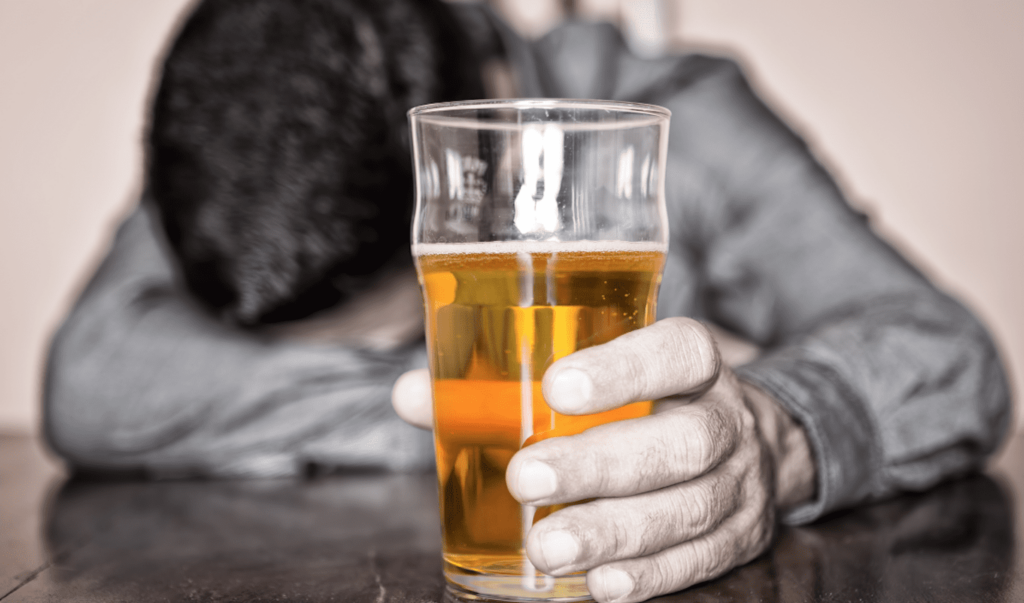
How Long Does It Take for 5 Alcohol to Kick in?
The time it takes for 5 alcoholic drinks to kick in can vary depending on several factors, such as the alcohol content, how much is consumed, and individual differences in metabolism. On average, it can take between 30 minutes to an hour for 5 alcoholic drinks to kick in.
The Effects Of Alcohol Consumption
Alcohol consumption can have both short-term and long-term effects on the body. Here are some of the potential effects:
Short-term effects
- Impaired judgment and coordination
- Slurred speech
- Nausea and vomiting
- Headaches and dizziness
- Mood swings and emotional instability
- Increased risk of accidents, injuries, and violence
- Risk of alcohol poisoning
Long-term effects
- Liver damage and disease, including cirrhosis and hepatitis
- Increased risk of cancer, including breast, liver, and esophageal cancer
- High blood pressure and increased risk of heart disease
- Brain damage and cognitive impairment
- Increased risk of depression and anxiety
- Addiction and alcohol dependence
- Social and relationship problems
How Long Does Alcohol Stay in Your System?
Alcohol can remain in your system for several hours after consumption, depending on the type and amount of alcohol consumed, as well as individual factors such as metabolism and body weight.
Alcohol detection tests can measure alcohol in various parts of the body, with varying detection times:
- Blood: Alcohol can be detected in the blood for up to 6 hours after consumption.
- Breath: Alcohol can be detected on the breath for 12 to 24 hours after consumption.
- Urine: Alcohol can be detected in urine for 12 to 24 hours, or up to 72 hours with more advanced detection methods.
- Saliva: Alcohol can be detected in saliva for 12 to 24 hours after consumption.
- Hair: Alcohol can be detected in hair for up to 90 days after consumption.
The half-life of alcohol, which is the time it takes for the body to eliminate half of the alcohol consumed, is typically between 4-5 hours.
However, this can vary depending on individual factors such as age, gender, and liver function. Remember that alcohol can impair judgment and coordination even after it has left your system, so it’s always important to drink responsibly and in moderation.
How to Sober Up Quickly
It’s important to remember that there is no quick fix to sobering up, as the body needs time to process and eliminate alcohol. However, here are some tips that may help speed up the process and reduce the effects of alcohol:
- Drink water: Alcohol can dehydrate the body, so it’s important to drink plenty of water to help flush out the alcohol and reduce the risk of dehydration.
- Eat food: Eating food, especially carbohydrates and fats, can help slow down the absorption of alcohol and provide the body with energy to metabolize the alcohol.
- Get fresh air: Taking a walk or getting some fresh air can help improve circulation and increase the body’s metabolism, helping to eliminate alcohol more quickly.
- Take a cold shower: A cold shower can help increase alertness and wake up the body, potentially reducing the effects of alcohol.
- Get some rest: Giving your body time to rest and recover can help reduce the effects of alcohol and allow the body to process the alcohol more effectively.
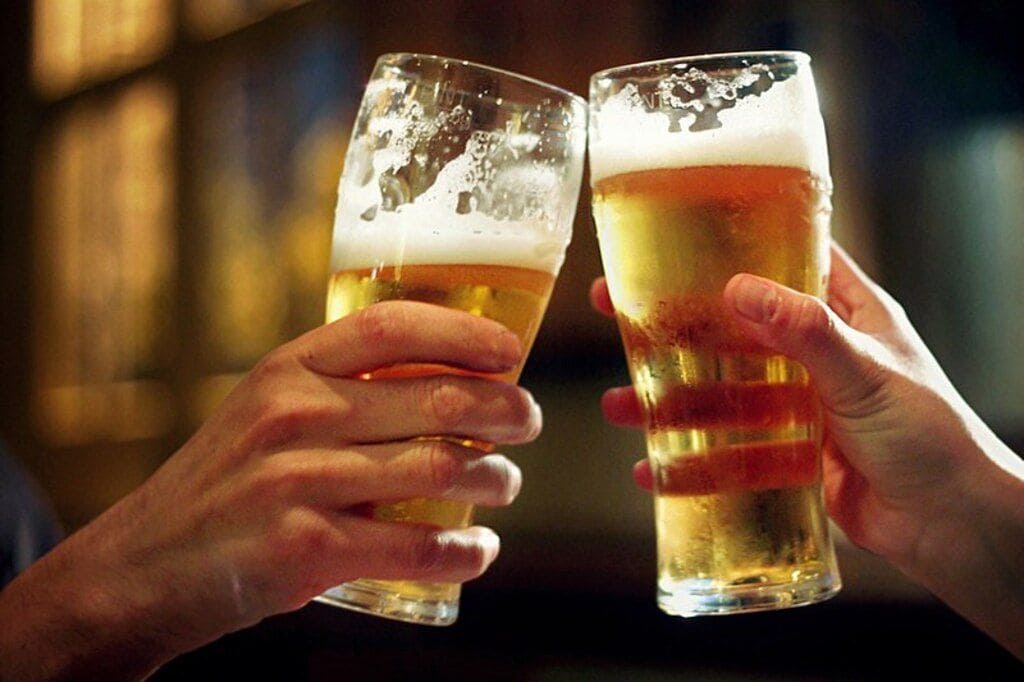
How Long Does it Take to Get Sober?
The time it takes to sober up can vary depending on several factors, such as the amount and type of alcohol consumed, body weight, metabolism, and individual differences.
On average, it takes about one hour for the body to metabolize one standard drink of alcohol, which is roughly 14 grams or 0.6 fluid ounces of pure alcohol.
For example, if a person has consumed 5 standard drinks, it can take around 5 hours for their body to completely metabolize and eliminate the alcohol. However, it’s important to note that the effects of alcohol can continue to linger even after the alcohol has been eliminated from the body.
Tips to Avoid Getting Drunk Too Fast
Here are some tips to help avoid getting drunk too fast:
- Know your limits: Understanding your personal limits and sticking to them is essential for responsible drinking. If you know that you can only handle a certain amount of alcohol, stick to that limit.
- Pace yourself: Drinking slowly and spacing out your drinks can help reduce the risk of overconsumption and getting drunk too quickly.
- Eat before drinking: Eating a meal before drinking can help slow down the absorption of alcohol and reduce the risk of getting drunk too fast.
- Alternate alcoholic drinks with non-alcoholic drinks: Drinking water, juice, or other non-alcoholic beverages in between alcoholic drinks can help pace your drinking and reduce the effects of alcohol.
- Choose lower alcohol drinks: Opting for lower alcohol drinks, such as beer or wine, instead of higher alcohol drinks, such as spirits or cocktails, can help reduce the risk of getting drunk too fast.
- Avoid drinking games: Drinking games can lead to overconsumption and getting drunk too quickly. Avoid participating in drinking games or other activities that encourage excessive drinking.
Remember, responsible drinking means being mindful of your alcohol consumption and minimizing the potential negative health consequences associated with excessive drinking. By following these tips, you can enjoy drinking without compromising your well-being.
FAQs
How do u know when ur drunk?
When you’re drunk, you may experience symptoms such as slurred speech, impaired judgment, loss of coordination, blurred vision, and slowed reaction time.
Can 1 alcohol get you drunk?
It depends on the type of alcohol, your body weight, and several other factors. However, it’s generally possible to get drunk from consuming one standard drink.
What to do if you wake up drunk?
If you wake up feeling drunk, it’s important to drink plenty of water to rehydrate your body. It’s also a good idea to eat a healthy meal and rest until the effects of the alcohol wear off.
Can a kid drink 1% alcohol?
It’s generally not recommended for children to consume any amount of alcohol, including beverages with low alcohol content such as 1% beer. In most countries, the legal drinking age is 18 or 21 years old.
What foods help sober up?
Eating foods high in protein, fat, and complex carbohydrates can help slow down alcohol absorption and reduce the effects of a hangover. Examples of such foods include eggs, avocados, nuts, whole-grain bread, and leafy greens.
Can medications interact with alcohol?
Yes, mixing alcohol with certain medications can be dangerous and lead to harmful side effects. It’s important to read the labels of any medication you take and consult with your doctor or pharmacist before drinking alcohol.
Does alcohol affect men and women differently?
Yes, alcohol affects men and women differently due to differences in body composition, enzyme activity, and hormone levels. Women tend to reach a higher blood alcohol concentration (BAC) faster than men after consuming the same amount of alcohol.
Can I still drink alcohol if I have certain health conditions?
It depends on the health condition and the medication you’re taking. People with certain health conditions such as liver disease, diabetes, and high blood pressure may need to avoid or limit alcohol consumption.
How can I tell if I have a drinking problem?
Some signs of a drinking problem may include an inability to control the amount of alcohol consumed, drinking alone, neglecting responsibilities, and experiencing withdrawal symptoms. It’s essential to seek help if you’re concerned about your drinking habits.
Can drinking alcohol impair your driving?
Yes, drinking alcohol can impair your driving by slowing your reaction time, impairing your vision, and affecting your judgment. It’s important to never drink and drive and to find alternative transportation options if you plan to drink.
Conclusion
In short, the question of how long does it take for alcohol to kick in is one that has intrigued many individuals for years. As someone who has had personal experience with the effects of alcohol, I can attest to the importance of understanding this concept. From the factors that affect alcohol absorption and metabolism, to the timeline of alcohol effects on the body, it is crucial to be aware of the potential risks associated with alcohol consumption. By taking responsibility for our actions and making informed decisions, we can minimize the negative effects of alcohol on our bodies and enjoy a safe and responsible drinking experience. Remember to always drink in moderation and know your limits to ensure a positive and enjoyable experience.
I’m Chen Mina, from Vol de Nuit, who has a special passion for bartending, especially mixing wine, beer, and cooktail. Here you will find content about alcoholic beverages, I will bring you knowledge that few people know about this drink.

